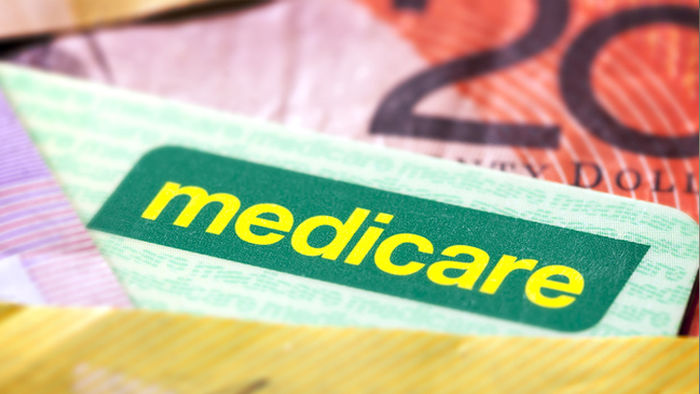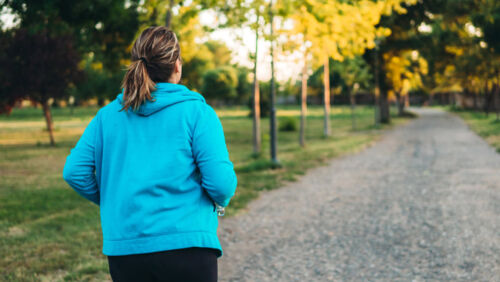Everything you need to know about Medicare
By Maria Bekiaris
Chances are you've heard of Medicare - it gives many Aussie residents access to free or cheap healthcare.
If you live in Australia (excluding Norfolk Island) you are eligible if you hold Australian or New Zealand citizenship or have applied for or been issued with a permanent visa.
If you don't already have a Medicare card you can enrol online at www.medicareaustralia.gov.au or get the relevant forms from your local Medicare Office. You'll need to show documents such as a birth certificate or passport. Call Medicare on 132 011 to check what type of proof you need to provide.
You can receive benefits for things like consultation fees for doctors including specialists, eye tests performed by optometrists, and tests by doctors to treat illnesses including X-rays and blood tests.
You can receive free treatment in a public hospital. Medicare won't cover you for private patient hospital costs, dental examinations and treatment, ambulance services, acupuncture and hearing aids.
Some doctors bulk bill, which means you don't have to pay them at all - Medicare will pay their bills directly. If you do have to pay a fee you can then take your receipt to Medicare and claim the benefit.
The amount that Medicare pays you is based on the "Medicare Benefits Schedule Fee" set by the federal government. Medicare usually pays the full schedule fee for GP services, 85% of the schedule fee for other out-of-hospital services and 75% of the schedule fee for in-hospital services.
Keep in mind that some doctors will charge more than the schedule fee, so you won't necessarily be getting a refund of 85% of what you paid. For example, if your doctor charges $150 but the Schedule Fee is $100, you'll only get back $85.
If you have a lot of out-of-pocket expenses though, the good news is the Medicare Safety Net (MSN) will cover some of these. Once you meet a MSN threshold you'll be able to get an extra benefit for the rest of the calendar year.
The first threshold is $388.80. Once you reach that you'll start getting paid 100% of the schedule fee for out-of-hospital services (as opposed to 85%). The next threshold is $562.90 for concession cardholders and families eligible for Family Tax Benefit Part A and $1126 for all other Medicare cardholders.
Once your out-of-pocket expenses reach that level you'll start receiving 80% of out-of-pocket costs on most services.
Some services are subject to a cap, which may be below 80% of your out-of-pocket expenses. Services subject to the Extended Medicare Safety Net benefit cap include all obstetric services, some pregnancy related ultrasounds, all Assisted Reproductive Technology services, one type of varicose vein surgery, one type of cataract surgery and hair transplantation for loss as the result of disease or injury.
Couples and families should register for the Medicare Safety Net, even if all family members are on the one card. Your costs are combined so you're more likely to reach the threshold sooner. You may also be able to claim some out-of-pocket expenses on your tax.
How Medicare is funded
Most taxpayers pay a Medicare Levy of 1.5% of their taxable income to help fund the scheme.
There are some exceptions - people on low incomes may pay a lower amount or be exempt altogether. For example, for 2010-11 the levy is reduced for individuals with a taxable income of $22,163 or less, and individuals with a taxable income of $18,839 or less don't have to pay the levy at all.
The low-income threshold for families is $31,789 without children, but the amount increases with each additional child. And the thresholds are even higher for seniors.
You may also be exempt from paying the levy if you're a foreign resident, a resident of Norfolk Island, not entitled to Medicare benefits, or you meet certain medical requirements. The tax office says if you're entitled to an exemption you need to tell them on your tax return.
If you earn above a certain amount and don't have private health insurance, you may have to pay extra in the form of the Medicare Levy Surcharge (MLS), 1% on top of the Medicare Levy.
In 2011-2012 you may have to pay the MLS if you are single with no dependents and earn more than $80,000, or if you are a couple with no children or one dependent child and you earn more than $160,000. The threshold increases by $1500 for each additional dependent child. This may change in 2012.
Get stories like this in our newsletters.



